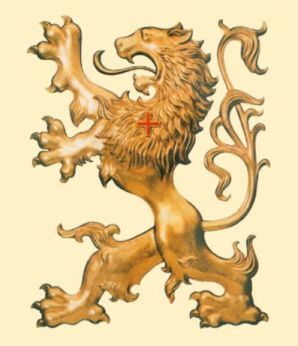|
Plinio Corrêa de Oliveira
Chapter
6
|
|
|
We intend to close the considerations brought to mind by the problem of the mandate or participation, with a special reflection on the clergy's position in the Church. Complexity of the Church's Government Etymologically, the term clergy indicates the elect, the chosen ones. The body of the clergy is constituted of those persons who, endowed with a vocation, consecrate themselves completely to the divine ministry. With just a little reflection, one can see that no position of command, by its nature, by the weight of the responsibilities it imposes, and by the terrible complexity of the matters it treats, is more burdensome and demanding than the government of the Church. Precisely because of this, the Divine Redeemer wanted that there be within Holy Mother Church a category of men especially responsible for the distribution of the Sacraments and the direction of ecclesiastical affairs. The functions of both the hierarchy of orders and the hierarchy of jurisdiction require such knowledge of doctrine, such great moral integrity, and such perfect renunciation of all earthly concerns that in the course of the twenty centuries of its existence, the legislation of the Church has been slowly but surely accumulating the necessary precautions for the perfect selection of the proper conditions for the formation and activities of the clergy. Special Formation of the Clergy The proper conditions for the formation of future clergy were established little by little, like successive conquests of experience in the service of high wisdom: major seminaries, minor seminaries, the manner of life, the curriculum of studies, the problems of the seminarians' spiritual formation, all have been the object of constant care of the Church, which has not spared the greatest efforts in this line. One can perceive in this legislation a constant concern to surround the formation of future priests and bishops with ever more complete guarantees. To crown these efforts, not long ago the Holy See established a Congregation specially entrusted with this matter. Invaluable Guarantees with Which the Church Protects Herself Legislation on the priest's way of life and moral obligations is also becoming ever richer. Two related regulations—firstly, the prohibition for a priest to dedicate himself to matters foreign to his ministry and, secondly, the prohibition, established in Canon Law, against entrusting hierarchical posts to those who are not clergymen—channel all the resources of this elite to the service of God and potentially or virtually place in the hands of the clergy the whole government of the Church. Ecclesiastical legislation led the clergy's situation, slowly but surely, to this sublime elevation, weaving an admirable work around the elements of divine institution that the issue contains. For this very reason, the zeal of the faithful has not been interrupted for even a moment in accompanying with their prayers, sacrifices, and resources the work of sanctification, recruiting, and formation of priests, while the great contemplative souls have consecrated their best expiations to this capital necessity of the Church. Errors about the Essence of Catholic Action Expose These Guarantees to Most Grave Risks It will not be difficult to understand, after all of this, the absurdity of expecting that an elite thus formed be left in the realm of governance with only a ridiculous power of veto, while laymen—perhaps pious and learned, but who cannot offer the Church the irreplaceable guarantee of a whole course of preparation for the priesthood—come to acquire positions that give them, for all practical purposes, an authority greater in many emergencies than that of priests. It is rash, in this matter, to argue on the basis of exceptions. For example, it is true—and military history is full of examples—that certain generals are born with such talent that they, without studies, can surpass in efficacy other generals with the finest academic formation. Yet, it is also true that no modern army allows the responsibilities of its officers to be placed in the hands of persons lacking a set course of studies, as the army has a vital necessity to protect itself against the thousand and one adventurers who would otherwise seize its reins of command. If this reflection is made regarding the order of ideas we have been describing, the rest becomes clear. Important Exceptions: a) In Regard to the Intentions with Which Many People Defend These Errors We fulfill a serious duty of justice by stating that, while it is the old spirit of rebellion that frequently peers out through imprudent statements on Catholic Action, it is not rare, on the other hand, to notice in certain souls a generous desire of sanctification and conquest. The infiltration, for a long time, of liberal principles in certain spheres of the Catholic laity produced such deep devastation that every zealous soul preserved an explainable horror of that period. The defense and expansion of Catholic principles was deemed the exclusive task of the clergy, and many laymen judged that they acted in an admirably correct way by limiting themselves to a strictly literal fulfillment of the most essential obligations imposed by the laws of God and the Church. As a result, religious associations would quite often complain of a chronic apathy that plunged them into a most deplorable routine; and this picture was in disconcerting contrast to the conquering audacity of the sons of darkness, before whose enterprising efforts Christian traditions were increasingly cowed, diluted, and amalgamated with a thousand errors, giving way to an entirely pagan order of things. The total heedlessness of spirit with which some souls, zealous for the glory of God, welcomed the prospect of lay participation in hierarchical posts or functions was, therefore, quite explainable. Such structural reform seemed destined to knock to the ground the whole inheritance of religious laxity, causing the laity to become directly interested in the work of the hierarchy and thus giving the lay apostolate a laudable increment. The great error of our time consisted precisely in attributing too great an efficacy to structural and juridical reforms, presuming that they could bring about, of themselves, the rebuilding of a crumbling civilization. In the political sphere, the correction of liberalism was attempted by means of dictatorship. In the economic sphere, correction was attempted by means of state corporatism. In the social sphere, inhibition of liberalism was attempted through police regulation. And in spite of this, no one would dare sustain that present conditions are more prosperous, tranquil, or felicitous than those of the Victorian era, during which liberalism reached its apex. The radical inefficacy of the remedies applied in trying to correct evil led us to even greater evils. What was needed was a reform of mentalities; reforming the laws proved to be futile and made even more evident the most dangerous consequences that the wrong medicine can produce in life-threatened patients. Liberalism was an evil: totalitarianism is a catastrophe. The cure for evils that many try to fight more with generosity than with perspicacity, by means of the doctrine of the mandate, is much more easily found in a methodical and secure religious instruction, and in a spiritual formation which is generous and thirsty for sacrifice. To say it all in a word, it is not in structural reforms that we should place our most ardent hopes of sanctification and conquest. If in each diocese or parish there were a group, small as it might be, of laymen capable of understanding and living the book of Abbot Jean-Baptiste Chautard, O.C.S.O., The Soul of the Apostolate, the face of the earth would be different. b) In Regard to the Advantage of the Spirit of Initiative and Frank Cooperation in the Laity We want to deal now with a subject which albeit not greatly linked with the preceding argumentation, is indispensable for understanding the spirit that moves us to write this book: Catholic Action will never be the realization of the grand design of Pius XI if its members are persons devoid of the spirit of initiative and conquest. While maintaining that the plenitude of powers in Catholic Action rests with the ecclesiastical assistant, the lay directors being only the executors of his plans, we are far from saying that the ideal model of Catholic Action is one in which the priest is obliged to intervene at every moment, do everything himself, and multiply his own efforts, rather than giving ample autonomy to competent laymen who, perfectly identified with the true aims of the assistant, have the knowledge and ability to bring them to fruition, thus sparing the priest's efforts, not multiplying them. The formation given in Catholic Action must aim at this latter type of laymen, and only when it has a great number of these will Catholic Action be able to triumph. It will never be sufficiently emphasized that the Church in general, and the hierarchy in particular, have nothing to fear from the collaboration of laymen of this quality and that Pius XI, trusting generously in them, showed himself not imprudent, but wise. What we do not want, however, is the presumption that the laity's activity can imply the limitation of the powers of the priest, who would thus be hindered from exercising his authority when, where, and as he sees fit, without having to answer for his actions to anyone save his bishop. In the final analysis, we do not want the priceless treasure reclaimed and preserved with such a heroic struggle by Bishop Vital Maria Gonçalves de Oliveira and Bishop Antonio Macedo Costa more than a half a century ago to be imprudently wasted. c) In Regard to the Preeminence of the Fundamental Organizations of Catholic Action over the Auxiliaries The problem of the relationships between Catholic Action and auxiliary associations is another matter usually linked to the problem of the mandate but having only a relative connection with it. The question is whether Catholic Action has preeminence over auxiliary associations. True, if Catholic Action participated in the hierarchy, it would have primacy over the other organizations, since these would be mere collaborators of the hierarchy. While contesting the highly controversial mandate, one can still say that Catholic Action, besides being the supreme militia—the "organization princeps," of the lay apostolate, as Pius XII called it, also exercises a "rectrix" function over all the apostolate activity of the laity, in charge of directing and coordinating their general activities and making use of auxiliary associations to fulfill the general goals of Catholic Action. In this case, it is only a question of positive legislation of the Church, and so the matter escapes the field of doctrinal controversy. Among us, the matter is regulated in the bylaws of Brazilian Catholic Action—which possess the full vigor of law—and, therefore it only behooves us to obey them diligently and lovingly. |
|

